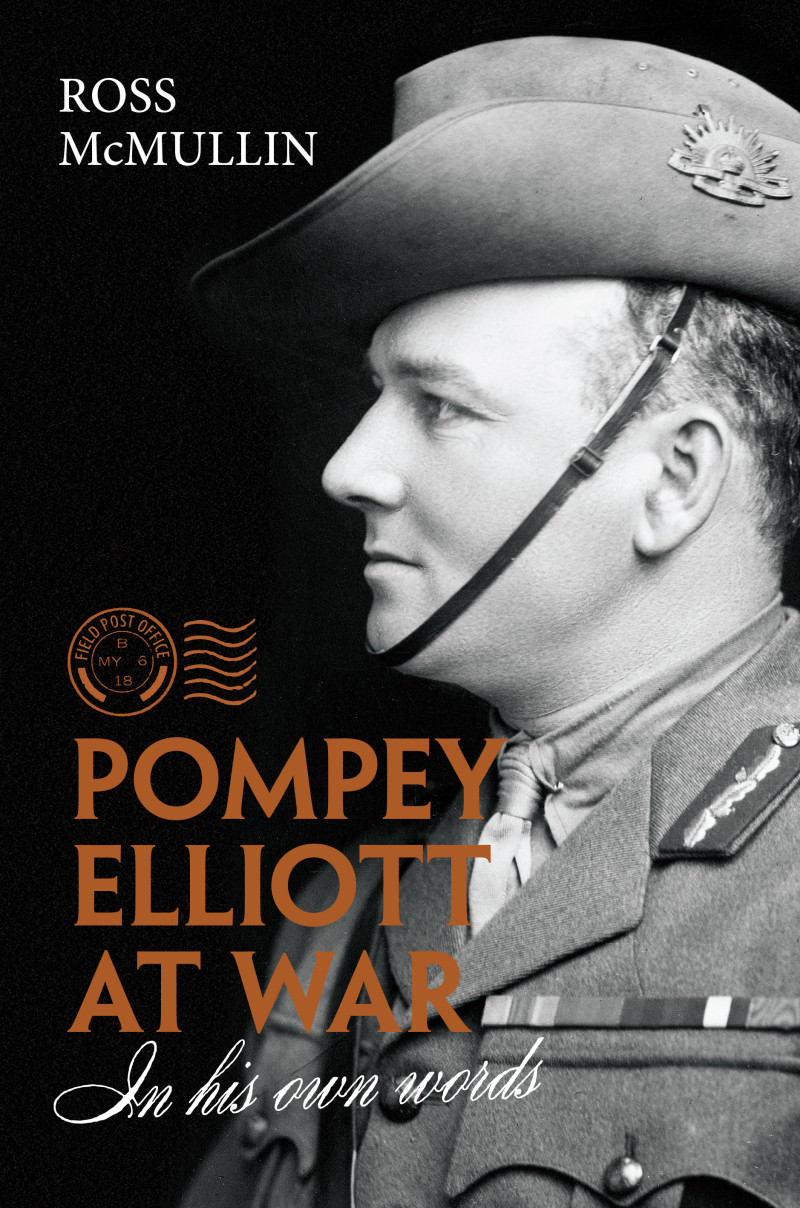“You have to go along to get along” is a truth about large organisations which ‘Pompey’ Elliott understood well. However, he refused to compromise his belief that the right thing needed to be done and doing the wrong thing needed to be called out. This is evident from his personal writing, much of which is documented in Pompey Elliott at War – In His Own Words by Ross McMullin.

Hardback 544pp RRP: $59.99
According to McMullin’s introduction, Elliott intended to create a personal narrative from his written records in letters and diaries but was unable to before his death. Pompey Elliott was a proliferate writer, mostly to his family, and his writing is both candid and vividly descriptive, covering all matter of things, from his experiences in the Middle East, on and behind the lines of the Western Front in France and Belgium, to his experiences during training and on leave in the UK. He served away from Australia almost from the start of the Great War until the demobilisation of Allied Forces several months after its conclusion. His writing includes detailed descriptions of his observations, his combat exploits, and the management, administration, and politics in which, as a battalion and then brigade commander, he became embroiled. Of interest is the recounting of his feelings and emotions from these experiences.
Ross McMullin did not so much author this book as compile extracts from Elliott’s writing. These extracts are arranged according to the chronology of the events they describe, as distinct from the time at which they may have been written. The dates of all extracted texts are clear but to avoid confusion it may be best to ignore them. Elliott’s writings are linked with brief statements of context, sometimes less than a sentence, provided by McMullin.
The chapters are exceptionally well segmented and focus on all the major events of Elliott’s wartime experiences and of the War itself. The book contains many footnotes that add to the readers understanding and enjoyment. Additionally, there are detailed annotations and a comprehensive index. There are several high-quality photos and excellent charts showing the Order of Battle for Elliott’s major engagements. A minor annoyance was a few maps on which I was disappointingly unable to find many of the places referenced in the text.
This is a long book and one criticism is that too many of Elliott’s letters to his immediate family dwell; as such letters usually do, on enquiring after everyone’s wellbeing and demonstrating affection for his wife and children. Clearly, Elliott loved and cared for his family and expressed that wonderfully well and often. I thought this point was made early in the book and the whole volume would have been better served by reducing the length, with fewer examples of this sentimentality.
However, the readers’ perseverance is well rewarded by Elliot’s more informative commentaries. In particular I thought Elliott’s revelations regarding his input to and occasional influence on battle strategy and tactics provided remarkable insight into Elliott himself but also into the thinking of the senior military leaders and their staffs who planned some of the major actions of WW1.
The extracts also give insight to Elliott’s’ foibles. For example, when in Egypt awaiting assignment he was obsessively preoccupied with the lack of licensing laws. His descriptions of squalor, corruption and, to his Melbourne solicitor’s point of view, overwhelming disorganisation are fascinating. He describes all the locations of his service in similar detail. Pompey Elliott has also provided several very graphic accounts of the military actions including, at times, the gruesome results, which will challenge anybody’s perception about war and its effects on the direct and indirect participants. What Pompey Elliott saw greatly moved him and may well have led to his untimely death.
By his own words, Elliott was fearful yet courageous, ambitious, and envious, but clearly amongst the most competent of WW1 leaders. He cared for his friends, family and those who served under him, but was not especially adept at managing upwards. When you read this book, you understand a lot about Pompey Elliott and it sometimes seems as though you were there with the General himself.
Reviewed for RUSIV by Kevan Sanderson, May 2018
Contact Royal United Services Institute about this article.






